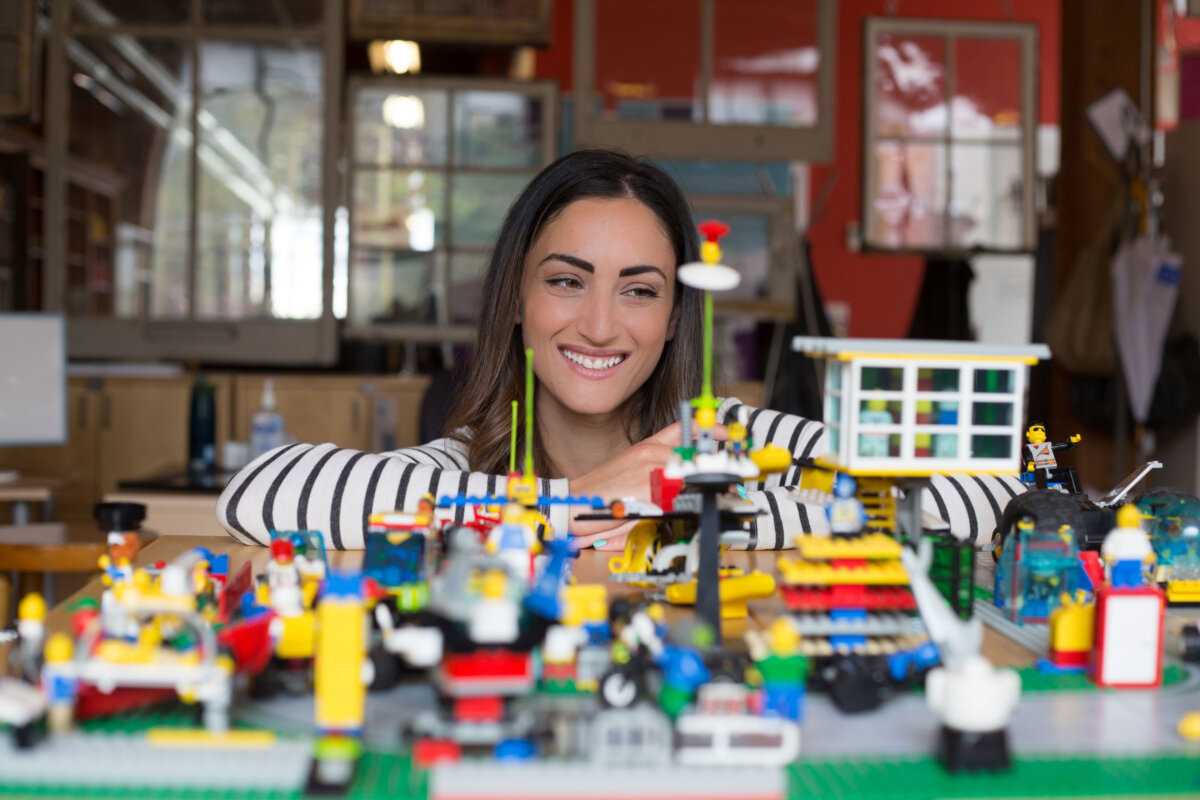For over a decade Ilana Ben-Ari has worked at the intersection of design and social innovation. Her brainchild, Twenty One Toys, is a training and development toy company bringing intentional play into the workplace and classroom. Ben-Ari is the founder, CEO, and lead designer of the company.
The inspiration for the business started years ago while she was studying Industrial Design at Carleton University. Ben-Ari discovered there was a huge emotional and social gap between the visually impaired and sighted community. For her thesis project, she designed the Empathy Toy to bridge that gap and allow both communities to play together.
Yet, she soon discovered that almost anybody could benefit from the skills learned by playing with the toy. Unlike traditional toys, Ben-Ari’s toys teach nebulous concepts like empathy and failure. The skills not taught or tested in school environments, but which experts pinpoint as the key to success in the 21st-century workplace. TIME even praised the Empathy Toy naming it as “one of the technologies reshaping classrooms of the future.”
While adulthood is dominated by work, at the other end of the spectrum early childhood celebrates play. Through her company, Ben-Ari is redefining play by developing toys to teach what textbooks can’t. Her toys provide hands-on learning to help children and adults think differently to solve the problems of tomorrow.
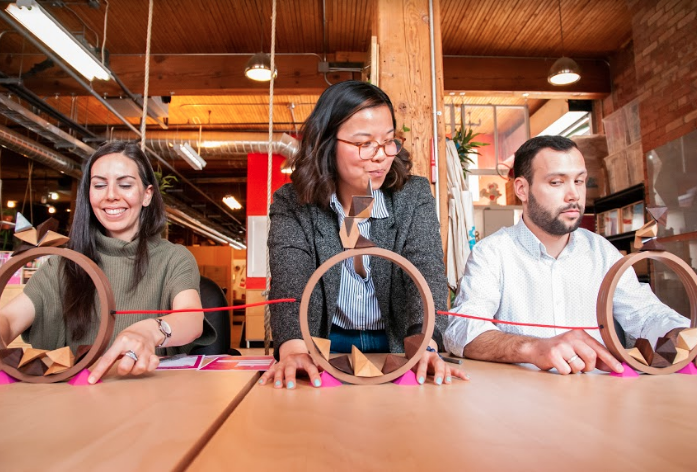

Now in thousands of classrooms and boardrooms worldwide, Ben-Ari has demonstrated that toys have an equally important role in business environments as any other tool. Twenty One Toys has introduced its products in corporations and have been embedded in certain MBA programs. The toys are placed in the hands of CEOs and employees alike, often utilized during training sessions and hiring processes.
Previously overlooked by companies in favour of technical ability, the soft skills developed while playing with Ben-Ari’s toys including socio-emotional, collaboration, and creativity are considered commodities in the future of work.
RELATED: Stathletes Co-founder Meghan Chayka is Changing the Game
The Future of Jobs report by the World Economic Forum echoed this when they listed emotional intelligence and creativity as some of the top skills for success in the workplace of the future. Alongside the growth of technology specifically artificial intelligence, people will need to embrace what it truly means to be human. Those who are self-aware and able to interact harmoniously with others will thrive in an increasingly complex world.
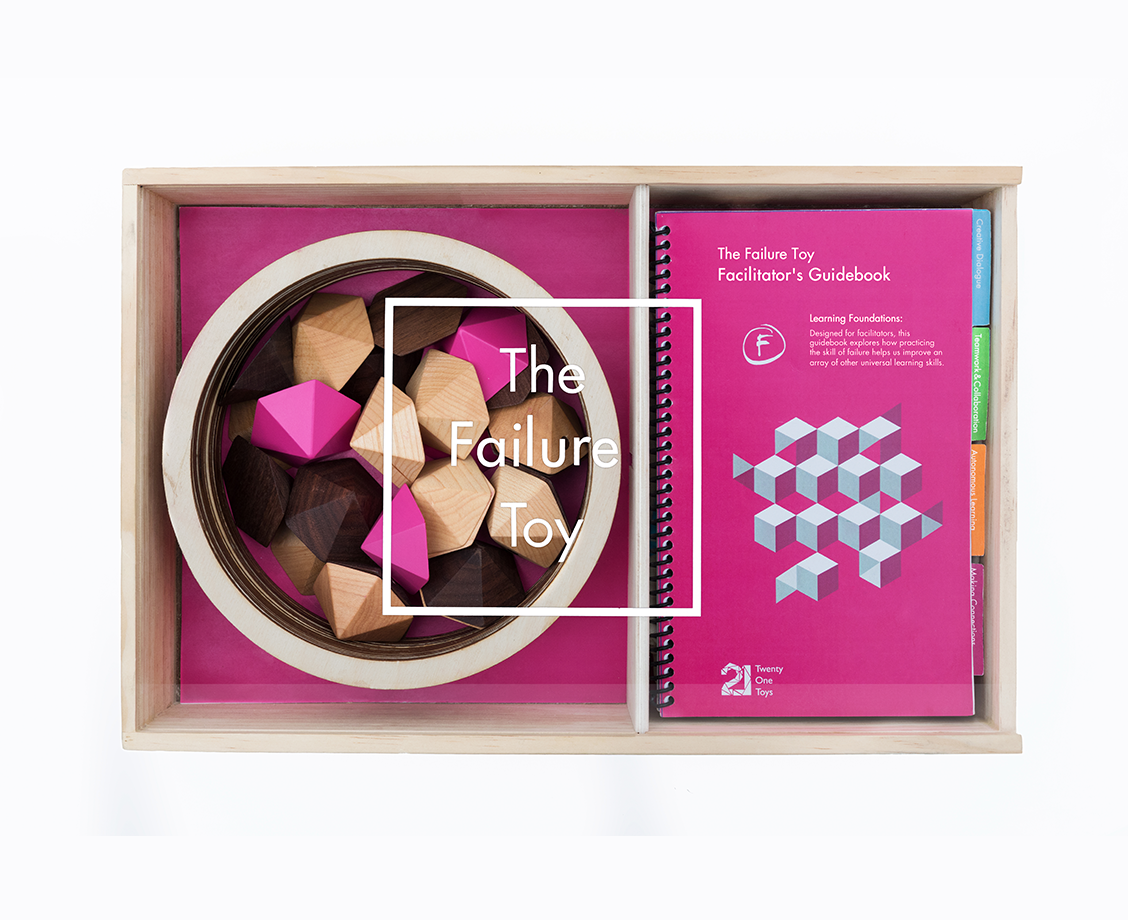

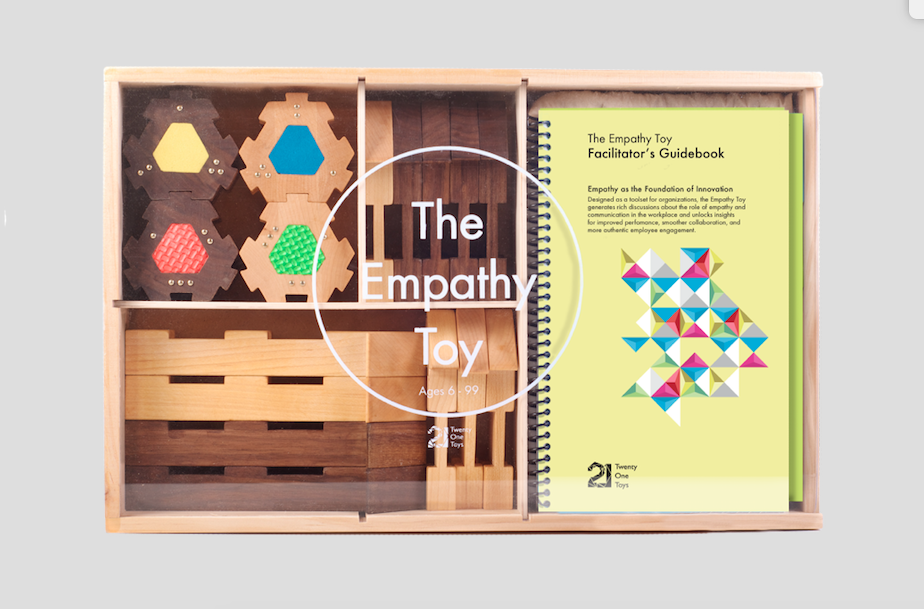

Traditional educational systems abandon play and stop teaching these soft skills after kindergarten. A study conducted by NASA tested a group of kindergartners on their creativity and divergent thinking. The results showed that 98 percent were considered creative geniuses. However, by the time the same group was 25 years old, less than two percent were given the same label.
Ben-Ari’s own stroke of genius was designing toys to help overcome this dichotomy. If the future of work depends on skills developed during playtime, how can adults tap into their own creative genius and explore ideas in a constricted world? In Ben-Ari’s viewpoint, “We want to play, we just haven’t been given the tools and space to.”
The challenge was determining how to bring these abstract concepts to life and what the right toys would be to cultivate a culture of play. What would the toys look like? What would they feel like?
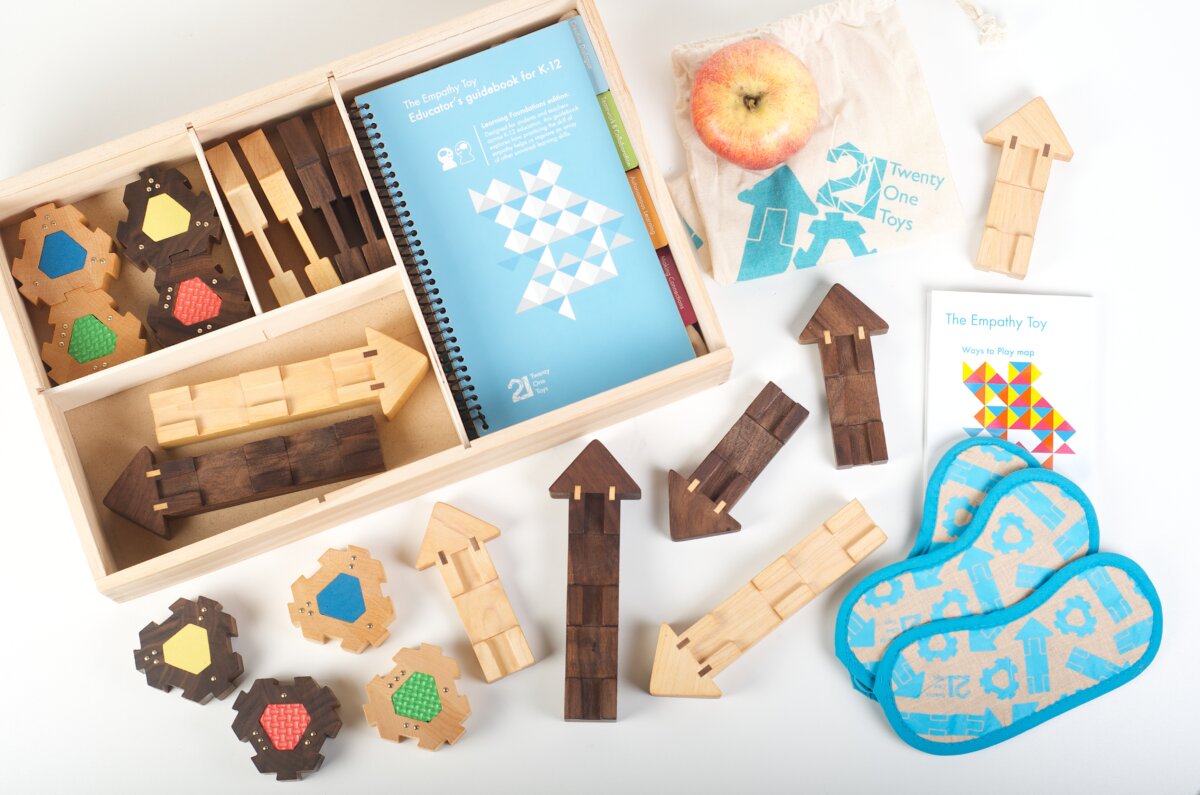

Ben-Ari was purposeful in her use of beautiful hardwoods and organic materials to create the toys as part of her vision for the rebrand of play. The Empathy Toy requires each player to wear a blindfold and communicate with each other to determine how to assemble the puzzle pieces correctly. Meanwhile, the Failure Toy challenges players to balance shape pieces and build on top of a round base, gaining points if they don’t fall off. According to Ben-Ari the next toy to look forward to will be one that explores the skill of improvisation.
RELATED: Veuve Clicquot is Celebrating Female Entrepreneurs With Their New Award
The toys are played within collaborative games, making humans the variable that change the dynamics. For instance, a boss playing with their employees may experience the game differently than general coworkers playing together. The toys are designed to spark meaningful discussion to improve understanding of yourself and fellow collaborators. Both games teach players how to lean further into their resilience and creativity. How do you react to stress and group pressure? How do you approach risk? These are just some of the questions that the toys can help players unpack ultimately leading to important insights.
Through her expanding collection of toys, workshops, and training programs Ben-Ari has used the transformative power of play to ignite creative genius and equip the leaders of the future with the skills to solve the world’s most pressing problems. Twenty One Toys is helping adults embrace their inner child and proving that playtime should be a lifelong endeavor.


